Peter Quantrill takes in some of the string highlights at the Royal Albert Hall from this year’s BBC Proms
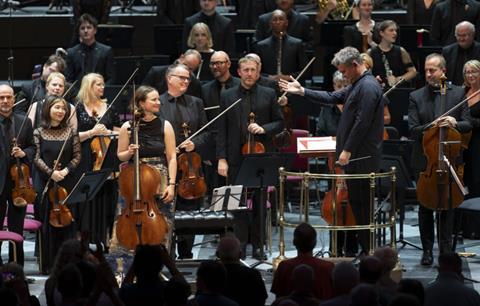
The vagaries of the acoustic at the Royal Albert Hall mean that a performance sometimes takes a more defined shape through the microphones and mixing desk of BBC Radio 3. A few days after attending the Prom on 26 July, I listened back to Cheryl Frances-Hoad discussing her cello concerto, Earth, Sea, Air: my spirits lifted as she talked about her feeling of affinity with the classical canon, at a time when the mere existence of the canon is a topic for politicised debate. In fact Laura van der Heijden’ s finely drawn account of the solo part cut through the heavy orchestration as keenly as on the recent Chandos recording (reviewed in July), accompanied in both cases by the BBC Scottish SO and Ryan Wigglesworth. If I still find the material itself plain, the development and operation of it (by composer and performer) command attention, especially in the buttoned-up lyricism of the slow central nocturne, which in itself places Frances-Hoad in a lineage from Purcell to Elgar to Britten.
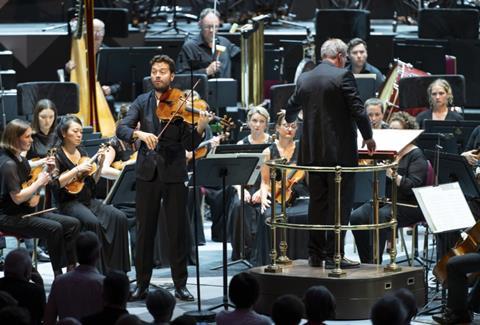
The finer points of Cassandra Miller’s orchestration were certainly lost in the warm, cavernous embrace of the RAH. It didn’t seem to matter: supported by the BBC Philharmonic under John Storgårds, Lawrence Power projected such a strong and yet vulnerable sense of identity with the solo part of I cannot love without trembling (31 July) that he drew the ear in to focus on a lament that barely raised itself above a tortuous whisper. The stuff of the piece is minimal, improvisational, bordering on vestigial: a descending scale, a handful of minor chords. Taking her title and theme from the self-negating philosophy of the Catholic mystic Simone Weil, Miller also draws inspiration from a ritual expression of grief in Greek culture. A radiant dirge is hard to imagine, but Miller’s concerto should attract any violist prepared to engage with the challenge of what is, in effect, a half-hour-long cadenza.
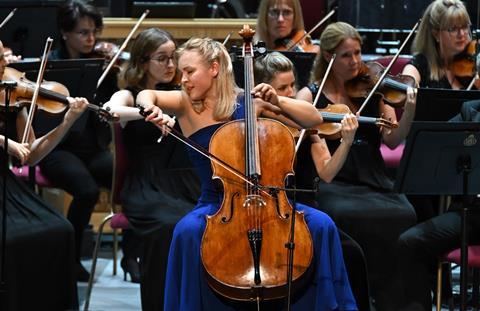
Any cellist bringing Elgar’s concerto to the Proms must feel the weight of history pressing upon them. Senja Rummukainen (3 August) embraced the legacy of du Pré with an extrovertly rhetorical approach to the solo part, where other non-English cellists often stay closer to the marks on the page. In charge of the BBCSO, her fellow Finn Sakari Oramo is an experienced Elgarian in his own right, and his guidance bore fruit in the gently flickering sepia tints and sustained dialogue. Rummukainen used strong accents, sometimes gruff tone and drawn-out cadences to dig into the ruminative stretches of the first movement, and uncovered an urgent, Tchaikovskian quality to the sequences of the Scherzo, which too often skips by like out-of-date Mendelssohn.
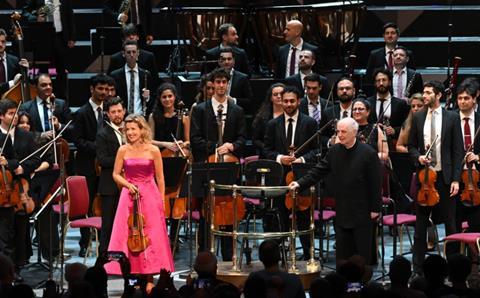
You rarely get an oven-ready performance at the Proms: reheat and serve. Certainly, from moment to moment of Brahms’s Violin Concerto (11 August) it was impossible to predict what would happen next. Now much reduced by age and frailty, Daniel Barenboim gave the broadest and yet smallest of down-beats to the West-Eastern Divan Orchestra. It took Anne-Sophie Mutter to find a vital pulse with her first entry, and thereafter she effectively led the performance with spellbinding, diplomatic tact, her gaze fixed on Barenboim, her body language working overtime with Michael Barenboim in the leader’s chair, seeming to let decades of muscle memory take over in the actual delivery of the solo part. The megawatt vibrato still fills a hall of any size, but she set a fairly strict pace for the Joachim cadenza, bringing out all its would-be-Hungarian qualities while keeping the show on the road. An unrepeatable, unforgettable one-off.
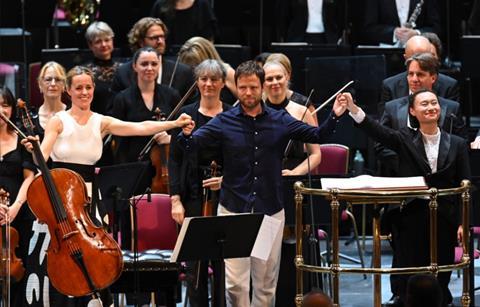
Novel in the more literal sense, no less compelling, was the UK premiere of the Cello Concerto by Francisco Coll (18 August). No title this time, but an accompanying painting, which Coll makes for every big new piece of his. Titled Serotonina, the canvas works in acid yellow and Mediterranean blue, a semi-abstract seascape with dancing figures. Composed for Sol Gabetta, the concerto also bursts with sunshine, underscored by characteristically heavy bass beats in the orchestra (the BBCSO under Tianyi Lu). Gabetta and Coll are old musical collaborators, and it shows, with the solo part’s abrupt contrasts of violence and romantic passion. Without recourse to avant-garde techniques, Coll stretches his soloist, and capitalises on her physical presence in a ferocious cadenza, traditionally placed before a euphoric dance to the double bar. No less than Miller, Coll’s music speaks to our time; it sounds like now. But it also engages with time-honoured principles of musical form and argument that, I fancy, will more gratifyingly reward repeated listening.
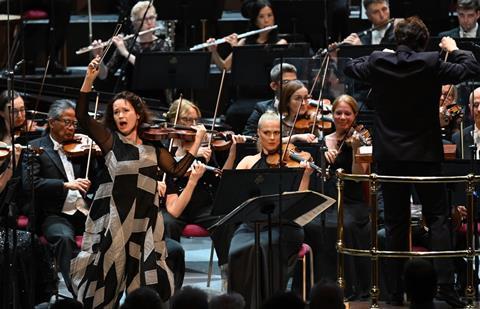
In this sense Coll is also more recognisably an inheritor of the legacy of Schoenberg, whose Violin Concerto (9 September) drew from Patricia Kopatchinskaja the concerto performance of the season. I could imagine more plush-tone, more Brahmsian accounts of the solo part, but not one more laser-focused and in tune, or acutely attuned to its Expressionistic contrasts of self-communing sorrow and playful optimism. Rehearsal time had evidently been well used, getting the BBCSO under Tarmo Peltokoski to dance to her tune. Now and then she played fast and loose with the dynamic markings, as soloists do in the heat of the moment; but the concerto itself lived in the heat of that moment, and did not require Kopatchinskaja’s almost apologetic defence of its ‘difficulty’ in her preamble. She could have let her bow do the talking.
The number one source for playing and teaching books, guides, CDs, calendars and back issues of the magazine.
In The Best of Technique you’ll discover the top playing tips of the world’s leading string players and teachers. It’s packed full of exercises for students, plus examples from the standard repertoire to show you how to integrate the technique into your playing.
The Strad’s Masterclass series brings together the finest string players with some of the greatest string works ever written. Always one of our most popular sections, Masterclass has been an invaluable aid to aspiring soloists, chamber musicians and string teachers since the 1990s.
The Canada Council of the Arts’ Musical Instrument Bank is 40 years old in 2025. This year’s calendar celebrates some its treasures, including four instruments by Antonio Stradivari and priceless works by Montagnana, Gagliano, Pressenda and David Tecchler.



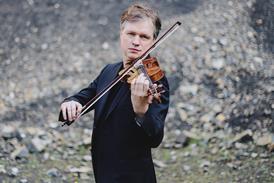
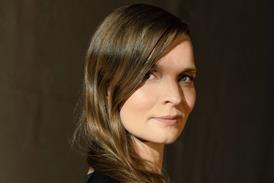

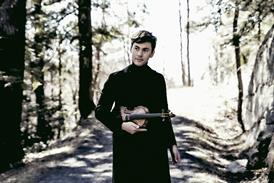





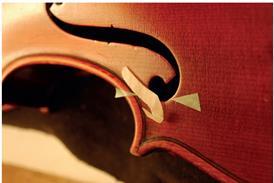
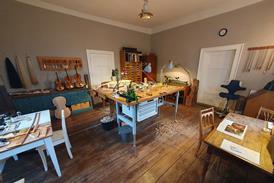
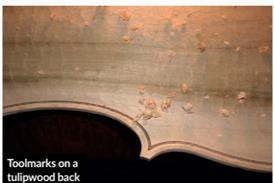























No comments yet